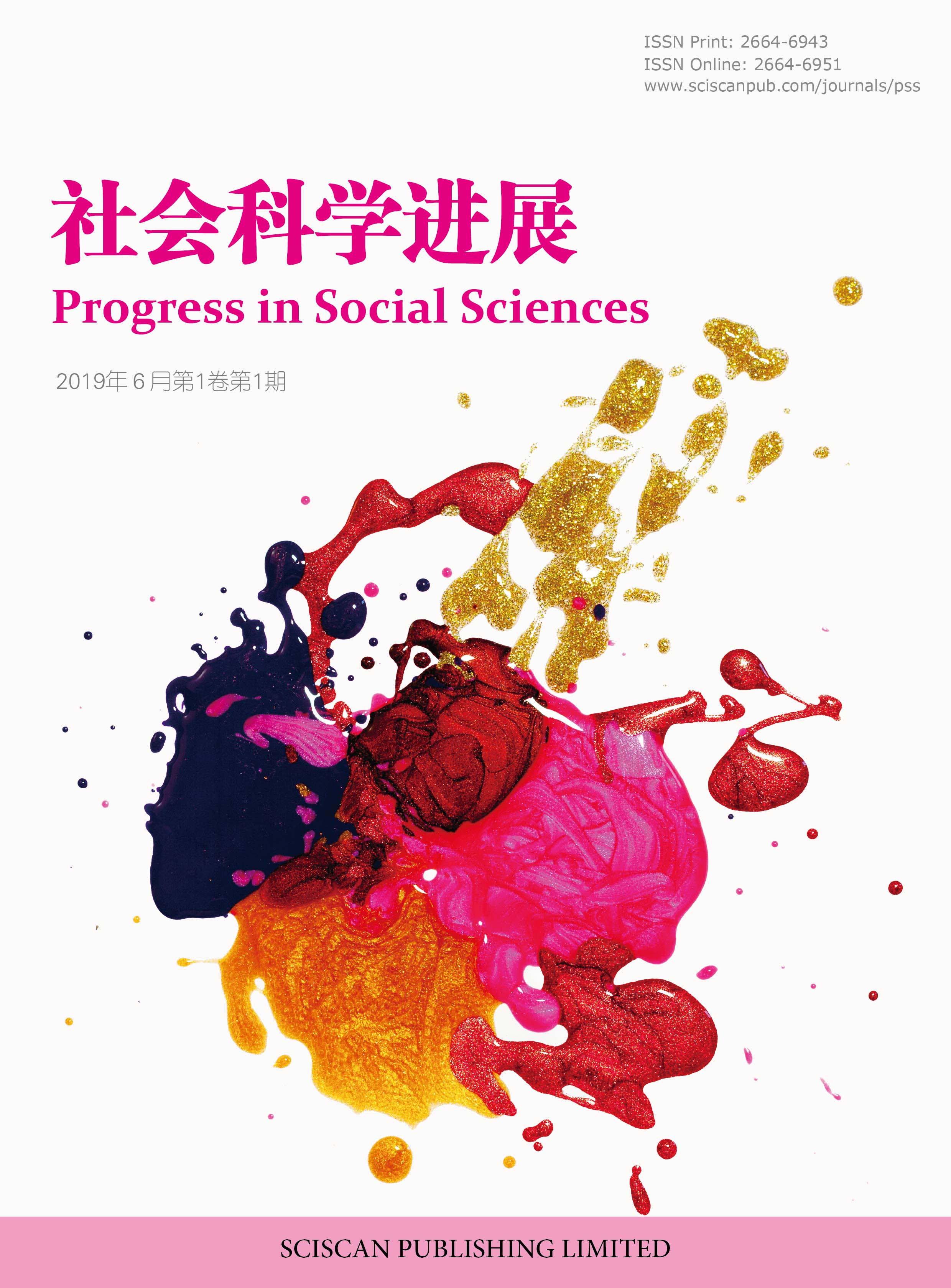Progress in Social Sciences
论民事诉讼瑕疵证据补强规则的适用
On the Application of the Rule of Strengthening Defective Evidence in Civil Litigation
- Authors: 曹路遥
-
Information:
上海政法学院,上海
-
Keywords:
Civil litigation evidence; Defective evidence; Corroboration rule民事诉讼证据; 瑕疵证据; 补强规则
- Abstract: Defective evidence and its corroboration rules are an important part of the civil litigation evidence system, directly related to judicial fairness and procedural efficiency. Defective evidence, due to its deficiencies in authenticity, legality or relevance, needs to be corroborated to obtain evidentiary capacity, which is fundamentally different from illegal evidence that cannot be remedied due to illegal collection. China’s current laws have initially established the concept of defective evidence and allow its probative force to be enhanced through corroboration rules. However, there are still many problems in legislation and judicial practice, such as insufficient detail in the rules, inconsistent application standards, and excessive discretion for judges, which seriously affect the clarification of case facts and the fairness of judgments. The core of the corroboration rule lies in using other evidence to enhance the probative force of defective evidence to meet the legal standards for fact-finding. Corroborative evidence must be authentic, legal, relevant, and independent, and must not have direct or indirect connections with the main evidence. At the same time, the application conditions should be clearly defined, especially when the main evidence has doubts or cannot reach the proof standard alone, corroboration should be used to form a complete chain of evidence to reduce the risk of misjudgment. To improve the corroboration rules for defective evidence in China, efforts should be made from three aspects: legislation, judiciary, and theoretical research. First, the classification and corroboration standards of defective evidence should be refined, especially the requirement for the independence of corroborative evidence. Second, the judicial process should be optimized, and the judges’ obligation to explain, the evidence investigation procedure, and the relief mechanism should be strengthened to improve the transparency and standardization of the application of the rules. Third, for special types of evidence such as electronic data and audio-visual materials, technical corroboration requirements should be clearly defined to ensure their authenticity and re-identifiability. By establishing a scientific and standardized corroboration rule system, the reliability of evidence in civil litigation will be significantly enhanced, and the balance between procedural fairness and efficiency will be easier to achieve, thereby promoting the legalization and fairness of judicial decisions. 瑕疵证据及其补强规则是民事诉讼证据制度的重要组成部分,直接关系司法公正与程序效率。瑕疵证据因在真实性、合法性或关联性方面存在缺陷,需通过补强获得证据能力,这与因取证违法而无法补救的非法证据存在本质差异。我国现行法律已初步确立瑕疵证据的概念,并允许通过补强规则增强其证明力。然而,立法与司法实践中仍存在诸多问题,例如规则细化不足、适用标准不统一及法官自由裁量空间过大,严重影响案件事实查明及裁判公正。补强规则的核心在于运用其他证据增强瑕疵证据的证明力,使其达到认定事实的法定标准。补强证据需具备真实性、合法性、关联性及独立性,且不得与主证据存在直接或间接关联。同时,应明确适用条件,尤其在主要证据存在疑点或单独无法达到证明标准时,需通过补强形成完整证据链以降低误判风险。完善我国瑕疵证据补强规则需从立法、司法及理论研究三方面入手。一是细化瑕疵证据的分类与补强标准,特别是明确补强证据的独立性要求;二是优化司法程序,强化法官释明义务、证据调查程序及救济机制,以提高规则适用的透明度和规范性;三是针对电子数据、视听资料等特殊类型证据,明确技术性补强要求,确保其真实性与可再识别性。通过构建科学规范的补强规则体系,民事诉讼的证据可靠性将得到显著提升,程序公正与效率之间的平衡目标将更易实现,从而推动司法裁判的法治化与公正化进程。
- DOI: https://doi.org/10.35534/pss.0704057
- Cite: 曹路遥.论民事诉讼瑕疵证据补强规则的适用[J].社会科学进展,2025,7(4):328-333.
1 瑕疵证据及其补强规则的界定
1.1 瑕疵证据的概念
“瑕疵证据”这一概念最早源于刑事诉讼领域,在刑事案件中,瑕疵证据的理论研究与司法实践相对成熟。然而,民事诉讼领域对瑕疵证据的研究多停留在实践层面。界定民事诉讼中的瑕疵证据,需追溯其法律依据,并结合司法实践展开分析。
在民事诉讼法体系中,对存在缺陷的证明材料进行界定与类型划分,需以现行法律法规为基本准则。例如,《最高人民法院关于适用〈中华人民共和国民事诉讼法〉的解释》第九十九条第三款规定a表明,司法解释层面已明确认可瑕疵证据的存在,指出其表现形式涉及证据来源、形式等方面,并允许当事人通过一定方式对瑕疵进行补正。此外,《民事诉讼法解释》《民事证据规定》等法律规范,将证据划分为“应当作为认定案件事实根据的证据”a“不能作为认定案件事实的证据”b“不能单独作为认定案件事实的证据”c。在司法审判实践中,对民事证据效力的审查认定可建立层级化体系,具体包括:具备完全证明效力的合规证据、需通过补充材料或强化证明力等方式完善其效力的待补正证据,以及违反法定程序取得的排除性证据[1]。
应将瑕疵证据与非法证据存在本质区别。非法证据是指通过侵害他人合法权益取得的证据,因取证行为违法,始终不具备证据资格,且必须严格适用排除规则。而瑕疵证据则因真实性、合法性或相关性存在问题而效力未定,但可通过补强予以完善。在法律实践中,非法证据因严重侵权无法补救,而瑕疵证据则由法官依据自由裁量权和补强规则综合评估。
1.2 瑕疵证据补强规则的概念
在我国,民事补强证据规则是指在民事案件中,指导法官运用补强证据使主证据获得证据能力,或增强主证据证明力以达到认定案件事实标准的规则。作为证据法的重要原则,该规则核心在于通过其他证据补充、强化证明力薄弱的证据,提升证据体系的整体可靠性,该规则适用于无法单独达到证明标准的证据,尤其是瑕疵证据。补强证据规则尤为重要。一方面,它引入具有更高证明力的证据为瑕疵证据提供支撑,降低因瑕疵证据导致判断失误的风险;另一方面,该规则在程序公正与实体正义之间取得平衡,避免完全排除瑕疵证据而影响案件事实查明。肖建华教授的观点强调了补强证据规则在法律实践中的重要性。这个规则的核心在于,单一证据不足以单独支撑案件事实的认定,需要其他证据的佐证来补强其证明力。这一原则尤其重要,因为它帮助防止因证据不足导致的司法不公。
1.3 关于我国瑕疵证据补强规则问题的提出
我国《最高人民法院关于民事诉讼证据的若干规定》(以下简称《旧证据规定》)在证据法发展中具有里程碑意义,尤其是第六十四条引入的自由心证原则,为法官裁量提供制度支持;第六十九条则确立了补强证据规则,旨在弥补单一证据在证明特定事实时的不足。然而,尽管该规则已实施二十余年,法律规范与司法实践中依然存在诸多问题,影响了其效果的发挥。
首先,现行立法在瑕疵证据补强规则的规定上存在不足。《旧证据规定》虽提出补强规则,但对适用条件、范围及标准缺乏详细规定。没有明确哪些证据属于“瑕疵证据”,也未区分不同类型的瑕疵证据如何处理,以及如何补强。缺乏细化的规范使得司法实践中标准不一,裁判结果可能存在差异,甚至出现同案不同判的情况。此外,补强证据的形式和标准也未明确,导致法官缺乏具体操作指引,难以规范处理瑕疵证据。
其次,司法实践中补强证据规则的落实困难重重。由于法律标准不统一,法官通常依赖自由心证原则进行处理,这虽然提供灵活性,但缺乏统一的规范可能导致裁判结果随意化,甚至影响司法公信力。实践中,部分瑕疵证据因未得到有效补强而被排除,从而使案件真相难以揭示,影响司法公正和当事人权益。例如,一些民事案件中,瑕疵证据因补强不足被直接排除,最终导致判决失误。
因此,补强证据规则的完善需要从立法和司法实践两个方面入手。立法应明确瑕疵证据的定义、分类及补强要求,细化补强证据的标准和形式;司法实践方面,需加强法官培训与案例指导,确保规则的统一性和规范性。通过这些改进,可以提升证据体系的可靠性,确保程序公正和实体正义的平衡,从而推动司法裁判的法治化与公正性。
从理论研究角度来看,中国关于瑕疵证据补强规则的学术研究起步较晚,仍缺乏系统性和深入性。尽管近年学术讨论有所增加,但关于瑕疵证据补强的研究多停留在概念和原则性层面,缺乏具体问题的分析。例如,针对不同类型瑕疵证据的补强策略、补强证据的数量与质量要求,以及其在不同法域(如刑事与民事诉讼中的应用差异)中的适用,学术界尚未形成一致的理论框架。这种研究滞后不仅制约了理论进展,也影响了立法与司法实践的完善。
尽管《旧证据规定》确立了补强证据规则,但在瑕疵证据的补强问题上,仍面临法律规范不完善、司法适用不统一及理论研究滞后的挑战。解决这些问题,立法机关应修订现行法律,详细规定瑕疵证据的定义、分类和补强要求;司法机关应加强案例指导,确保规则适用的统一性;学术界则应加强对瑕疵证据补强的深入研究,为制度完善和司法实践提供理论支持。通过立法、司法与学术的共同努力,我国瑕疵证据补强规则体系能够实现标准化、规范化,从而更好地服务司法公正与效率[1]。
2 我国的瑕疵证据补强规则及典型案例
2.1 我国瑕疵证据补强规则的演变
1991年春,第七届全国人民代表大会第四次会议审议通过了我国首部独立法典化的《民事诉讼程序法》,标志着中国特色社会主义程序法体系迈入新阶段。在民事诉讼补强证据规则构建的初始阶段,立法层面明确了“孤证不能定案”a的原则。这一阶段的立法着重强调了当事人陈述和视听资料作为证据时,必须辅以其他证据来增强其证明力。同时,法律条文中也首次对证人的证据资格进行了规定b。这些规定标志着民事补强证据规则开始被纳入学术研究的范畴。
自1991年首次颁布以来,《民事诉讼法》已经经历了四次修订,分别在2007年、2012年和2021年进行。自1991年首次颁布以来,《民事诉讼法》历经了四次修订(2007年、2012年、2017年和2021年)进行。除了2017年的修订对鉴定人员和现场勘查记录的证据效力进行了新的规定之外,其他的几次修订并没有带来本质上的改变。这些修订并没有在条文的数量上进行增减,也没有对内容进行实质性的修改,唯一的变化仅仅是对法条顺序的调整[3]。
2.2 证据能力的瑕疵证据补强规则典型案例
(1)当事人因拒绝到庭而举证丧失证据能力
案例:李某、张某与刘某某三方通过合意形成《借款合同》法律关系。根据该条款,出借人赵某某向借款人刘某某提供分期履行之信贷安排,实际债权债务关系的确立需综合考量资金实际交付情况及书面债权凭证记载内容,契约效力期间设定为十二个月,但该契约文本存在签署时间要素缺失的瑕疵。在二审过程中,张某提交了一份名为《关于我为张某借款担保一事的情况说明》(以下简称《情况说明》)的文件,试图证明李某确认于2014年3月10日在涉案《借款合同》上签字的事实。在司法审查程序推进过程中,受案法院依法传唤张某、李某等涉诉契约缔约方作为关键诉讼参与人出庭应诉。经审查发现,李某已依法履行出庭作证义务,而张某既未按传票要求参与庭审质证程序,亦未依法履行举证义务就其缺席事由进行正当性抗辩。鉴于此种情形,合议庭依据法定程序要求张某委托诉讼代理人就缔约磋商过程进行陈述说明,但该代理人仅能依据既有书证材料对交易形成背景作有限度的法律解释,未能提供具有证明力的新证据。由于张某未能到庭,法院无法进一步核实案件事实。最终,张某提供的证据不足以证明涉案《借款合同》的签订时间以及涉案借款是否属于该合同项下的借款,法院据此驳回了张某的上诉请求c
合法性、真实性和关联性是证据根据法律规定所必须具备的。本案中,张某提交的《情况说明》旨在证明李某认可《借款合同》上的签字,形式上具备一定证据能力,但因缺乏签约日期等关键信息,存在瑕疵。根据补强规则,主要证据存在瑕疵时,需要其他证据补强。但张某未能提供足够证据证明《借款合同》的签订时间及其与借款的关联。根据法律,当事人有义务出庭作证以证实证据的真实性。本案中,张某拒绝出庭且未提供正当理由,导致《情况说明》无法得到进一步补强,从而影响其证据能力。法院要求张某和李某到庭审查《借款合同》的真实性和签订时间,但因张某未到庭,法院未能有效审查该证据,无法确认其真实性和关联性。因此,《情况说明》失去作为定案依据的能力。由于张某未履行出庭义务,且未提供补强证据,法院最终驳回了张某的上诉。
(2)证人拒签保证书导致证言丧失证据能力
案例:许某与吴某等人为许某某的住宅建设工程提供瓦工服务。在施工过程中,吴某因受伤提起诉讼,要求许某某承担雇主责任,并赔偿相关经济损失。在庭审中,吴某提交了其委托的诉讼代理人制作的两份关于梁某1和梁某2的调查笔录,试图以此证明其与许某某之间存在雇佣关系。然而,两名证人未能提供合理理由便未出庭作证,且也未签署证人出庭保证书。法院认为,根据民事诉讼法的规定,证人除符合第73条所列的特殊情形外d,应当亲自出庭作证,并签署出庭保证书,真实陈述案件事实,接受各方当事人的质询。经查发现吴某仅向法庭递交询问笔录材料,既未依法履行证人传唤申请义务,亦未能举证证明相关证人存在法定阻却出庭事由。鉴于此种证据缺陷,该证人陈述材料因不符合证据合法性要求,依法不具可采性。综合全案证据,法院认为吴某未能证明其与许某某之间存在雇佣关系a
在民事诉讼中,证人证言的证据能力至关重要。本案中,吴某某的两位证人梁某1和梁某2未出庭作证且未签署保证书,导致其证言的证据能力受到质疑。根据民事诉讼法规定,证人出庭作证并签署保证书是证言被采纳的前提,这不仅增强了证言的可信度,也保证了其真实性。由于证人未出庭且未提供保证书,本案证言存在明显瑕疵,无法通过补强规则修正。法院根据民事诉讼法第73条,认为证人应出庭接受询问,吴某未能证明证人无法出庭的合法理由,因此判定这些证言不能作为事实认定的依据。最终,由于缺乏足够证据支持,法院未能确认吴某与许某某的雇佣关系,驳回了吴某的诉讼请求。这一裁决体现了法院对证据能力的严格要求,强调了证人出庭和保证书的重要性。
2.3 证明力层面的瑕疵证据补强规则典型案例
(1)混淆单个瑕疵证据与“孤证不能定案”
案例:根据《新证据规定》第九十条规定b,原告声称有第一张借条,并提供了其复印件。按照法律规定,仅仅使用复印件无法单独作为认定事实的依据。然而,本案中,原告还提交了第二张借条,该借条上的日期与原告所述的第一张借条的日期一致。此外,第二张借条中注明被告已归还了一万元本金,这表明双方早在此之前就建立了借贷关系。此外,被告的转账金额与第一张借条中约定的利息相符,且有一定规律性。鉴于第一张借条的复印件与第二张借条的内容、转账金额及原告的陈述相一致,且不构成孤证,初审判定第一张借条是存在的c
“孤证不能定案”原则是中国司法体系所遵循的,即单一证据不足以确立案件事实,需依赖其他证据的相互印证。根据《新证据规定》第九十条明确的规定d,在本案中,原告主张存在第一张借条,并提交其复印件。根据法律规定,未经验证的复印件不能单独作为有效证据。然而,原告提交了一份与第一张借条时间相符的借条,证明被告已经归还了1万元的本金。这一证据表明,双方在签署第二张借条之前已经存在民间借贷关系。此外,被告的转账金额与第一张借条上的利息金额相一致,且具有一定的规律性,进一步支持了第一张借条的真实性。这些证据共同构成了一个证据链,使第一张借条的复印件得到了其他证据的印证。一审法院综合分析了所有证据的关联性及相互关系,确认了第一张借条的存在,而非依赖单一证据裁决,充分体现了“孤证不能定案”的原则。瑕疵证据的补强规则要求主证据与补强证据结合以增强证明力,但并不完全排除单独证据支持案件事实的可能性。
(2)对存有疑点之疑点的理解产生偏差
案例:原告提交的录音证据中,王某某未明确表示其欠原告70万元。同时,原告提交的《还款协议书》复印件显示“160万元本金计息至2018年12月30日,其余205万元的本金由王某某出资,需由嵘丰公司的庞某某和王某某另行协商解决。”根据《新证据规定》第九十四条,原告提供的录音证据法院皆不予采纳e
根据《新证据规定》第九十条,存在疑问的视听资料和电子数据不得单独确认案件事实。本案中,原告提供的录音证据未能清晰显示王某某承认欠款70万元,存在疑点,故无法单独支持案件事实。原告提交的《还款协议书》为复印件,虽与原告陈述相关联,但因无法核对原件,其证明效力存疑,亦不能作为独立依据。根据《新证据规定》第九十一条,复制件仅在核对无误时才具备原件效力。然而,原告未能提供其他证据增强录音和复印件的证明力,因此,法院依据《新证据规定》第九十条不采信录音证据合乎法律规定。综上,因录音和《还款协议书》复印件均存疑且缺乏补强证据,法院决定不予采纳。这体现了我国司法实践中“孤证不能定案”原则的重要性。
3 完善我国瑕疵证据补强规则的路径及适用建议
3.1 完善瑕疵证据补强规则的路径
(1)证据能力瑕疵的补强规则完善
要使证据得到补强,首先必须满足证据的“三性”要求,其中独立性是基本准入标准。补强证据应具备独立来源,不能是主证据的副本或衍生品,亦不应受主证据影响。如果补强证据缺乏独立性,可能导致相互补强,违背补强规则初衷。因此,立法应明确规定补强证据的独立性,并允许法官根据具体案件情况自由裁量。其次,应增设补强规则的调查程序,以保障证据的提交与审查。调查程序应包括:明确当事人举证责任,要求在法定期限内提交独立性证据;审查顺序上应先补强证据后主证据,以避免先入为主的偏见;设立救济措施,确保当事人可通过上诉或申诉纠正不当行为。此外,法官应在庭审中履行释明义务,及时揭示证据评判并提示补强,确保对方可在庭审辩论结束前提出异议并获得明确答复,以增强审判的公正性与透明度[4]。
(2)证明力瑕疵的补强规则完善
我国现行民事诉讼法律体系具有分散性,多个层次的规定并存导致法律适用混乱[5]。例如,《民事诉讼法》第七十四条要求视听资料必须与其他证据结合才能作为定案依据,而《新证据规定》第九十条则规定,只有视听资料存疑时,才不能作为唯一定案依据。法律条文与司法解释的冲突使得法官在适用时产生不确定性。[6]此外,不同司法解释之间也存在矛盾,例如,《民事诉讼法司法解释》第九十二条规定当事人承认不利事实时对方无须举证,而《新证据规定》第九十条则否定当事人陈述作为定案依据。这种矛盾反映了立法水平的不足。为此,应对现行补强规则进行系统化和集中化,统一立法标准,建议将《新证据规定》第九十条纳入《民事诉讼法》,提升法律适用的一致性与权威性。
3.2 瑕疵证据补强规则适用的建议
3.2.1 言辞型瑕疵证据
(1)当事人陈述的补强适用
首先,应当建立健全的当事人询问机制。《民事诉讼法司法解释》授权法院询问当事人,但未明确启动询问程序的具体条件和限制,这使法官拥有较大自由裁量空间,可能导致不规范询问并扩大当事人真实义务。因此,需清晰界定法官询问的条件和范围,合理界定当事人真实义务的边界。其次,应进一步强化当事人的出庭义务及诚实陈述义务,从而确保其真实义务得到有效落实。同时,应该建立惩罚机制;若当事人在法官询问过程中作出严重虚假陈述,可引入藐视法庭罪,使其承担刑事责任,以增强法律震慑力[7]。
(2)证人证言的补强适用
应当完善证言审查机制,法官在评估证人证言可靠性时,应保持严谨与谦和的态度,以尊重证人、消除证人的抵触心理,提升证言可信度。同时,需要强化伪证追责机制,严格执行相关法律,对于故意提供虚假证词的证人,应根据其行为的严重性和主观恶意程度予以严惩,直至追究其刑事责任[8]。
3.2.2 实物型瑕疵证据
要明确建立两类证据补强机制的基本原则。首先,应限制补强证据的提供主体。根据数据存储和删除的技术特性,即使是微小的数据变更,也需要专业技术手段恢复[9]。因此,提供补充证据的主体必须具备专业素养、中立立场和权威性,确保其提供的证据能够有效增强原始证据的说服力。其次,针对电子数据的补充手段应遵循数据使用规范。电子数据依赖电子设备传输和操作,补强机制应特别关注存储介质和设备的可靠性,评估网络稳定性,检测是否存在病毒或恶意软件干扰,并审查收集和使用环境。封闭型系统中的电子数据相较开放型系统更具证据效力,因此应重点分析数据的真实性和变更情况,确保证据的可靠性和有效性。最后,补强证据应具有可再识别性。证据不仅用于确立案件事实,也是当事人提出再审请求的重要依据。提交电子数据或视听资料时,应附带原始数据载体(如光盘或U盘),并全面呈现数据来源、原始状态、制作者信息等,确保证据的完整性与真实性,满足司法需求[10]。
4 结语
瑕疵证据补强规则是民事诉讼证据制度的重要内容,直接影响司法公正与程序效率的实现。瑕疵证据指因真实性、合法性或相关性存在缺陷,但通过补强可能具有证据能力的证据,其与非法证据不同,后者因取证违法无法通过补救获得采纳资格。我国《民事诉讼法解释》已初步确立瑕疵证据的概念,并允许对瑕疵证据进行补正,但相关规则尚存不足。补强规则的核心在于通过其他证据增强瑕疵证据的证明力,使其达到认定案件事实的要求。具体而言,补强证据需独立于瑕疵证据,具有独立的真实性、合法性和相关性,确保不被主证据直接或间接影响。补强的应用需要明确适用条件,如当主要证据存在疑点、无法单独令人信服时,需通过补强证据形成相互印证的证据链,以降低误判风险并兼顾程序公正与实体正义。但在立法与司法实践中,当前我国瑕疵证据补强规则仍存在许多问题。在立法层面,补强规则缺乏明确细化,如未清晰界定瑕疵证据的类型及其对应的补强要求,导致司法适用标准不统一。在司法实践中,法官自由裁量权较大,但裁判随意性亦增加;部分瑕疵证据因补强不足被排除,可能影响案件事实的查明。此外,学术研究多停留在原则性探讨,尚缺乏针对具体问题的深入分析。我国应从以下几方面完善规则:一是细化瑕疵证据分类及补强标准,将补强证据的独立性纳入法律框架,并明确当事人的补强义务;二是优化司法程序,通过法官释明义务、强化证据调查程序与救济机制,提升裁判透明度与规范性;三是针对电子数据与视听资料等特殊类型证据,明确技术性补强要求,确保其真实性与可再识别性。
通过立法、司法与理论研究的共同努力,构建科学、规范的瑕疵证据补强规则体系,进一步提升民事诉讼的证据可靠性,平衡程序公正与效率目标,推动我国司法裁判法治化与公正化的进程。
参考文献
- 肖建华.民事证据法的理念与实践[M].北京:法律出版社,2005.
- 毕玉谦.民事证据原理与实务研究[M].北京:人民法院出版社,2003.
- 汤维建.民事诉讼非法证据排除规则刍议[J].法学,2004(5).
- 李学军,刘静.瑕疵证据及其补救规则的适用[J].清华法学,2020,14(5).
- 施陈继.论孤证不能定案之瑕[J].东南法学,2017(1).
- 张卫平.自由心证原则的再认识:制约与保障——以民事诉讼的事实认定为中心[J].政法论丛,2017(4).
- 纪格非.我国民事诉讼中当事人真实陈述义务之重构[J].法律科学(西北政法大学学报),2016,34(1).
- 王洪用.误证与伪证:论民事诉讼中证人证言的可靠性[J].时代法学,2017(6).
- 王春.论电子证据补强规则确立及补强机制建构[J].湖北社会科学,2012(8).
- 李敏.民事诉讼瑕疵证据补强的基本要求[J].人民司法,2014(16).
[1] [2] [3]
[1] 《民事诉讼法解释》第一百零四条第二款 能够反映案件真实情况、与待证事实相关联、来源和形式符合法律规定的证据,应当作为认定案件事实的根据。
《民事证据规定》第八十九条 当事人在诉讼过程中认可的证据,人民法院应当予以确认。但法律、司法解释另有规定的除外。
[2] 《民事诉讼法解释》第一百零六条 对以严重侵害他人合法权益、违反法律禁止性规定或者严重违背公序良俗的方法形成或者获取的证据,不得作为认定案件事实的根据。
[3] 《民事证据规定》第九十条 下列证据不能单独作为认定案件事实的根据:(一)当事人的陈述;(二)无民事行为能力人或者限制民事行为能力人所作的与其年龄、智力状况或者精神健康状况不相当的证言;(三)与一方当事人或者其代理人有利害关系的证人陈述的证言;(四)存有疑点的视听资料、电子数据;(五)无法与原件、原物核对的复制件、复制品。
[1] [2] [3] [4]
[1] 1991 年《民事诉讼法》在 1982 年《民事诉讼法》第七十一条规定“人民法院对当事人的陈述,应当结合本案的其他证据,审查确定能否作为认定事实的根据。当事人拒绝陈述的,不影响人民法院根据证据确定对案件事实的认定。”此外,还额外增加规定了对视听资料的补强规定,规定于《民事诉讼法》第六十九条:“人民法院对视听资料,应当辨别真伪,并结合本案的其他证据,审查确定能否作为认定事实的根据。”
[2] 1991年《民事诉讼法》第七十条第二款,“不能正确表达意思的人,不能作证。”
[3] 参见张某、李某民间借贷纠纷案,中华人民共和国最高人民法院(2017)最高法民终24号。
[4] 2017 年《民事诉讼法》第七十三条 经人民法院通知,证人应当出庭作证。有下列情形之一的,经人民法院许可,可以通过书面证言、视听传输技术或者视听资料等方式作证:(一)因健康原因不能出庭的;(二)因路途遥远,交通不便不能出庭的;(三)因自然灾害等不可抗力不能出庭的;(四)其他有正当理由不能出庭的。
[1] [2] [3] [4] [5]
[1] 参见吴某、许某某提供劳务者受害责任纠纷案,安徽省淮北市中级人民法院(2018)皖 06 民终 18号。
[2] 《新证据规定》第九十条规定:“......某些证据不能单独作为事实认定的凭据,其中包括无法核对原件的复印件或复制品。”
[3] 参见李某某、陈某某民间借贷纠纷案,广西壮族自治区防城港市中级人民法院(2021)桂06民终1305号。
[4] 《新证据规定》第九十条明确指出了不能单独作为认定案件事实根据的证据类型,具体包括:
(一)当事人的陈述;(二)无民事行为能力人或者限制民事行为能力人所作的与其年龄、智力状况或者精神健康状况不相当的证言;(三)与一方当事人或者其代理人有利害关系的证人陈述的证言;(四)存有疑点的视听资料、电子数据;(五)无法与原件、原物核对的复制件、复制品。
[5] 参见郭某某与王某某债权转让合同纠纷案,山东省菏泽市牡丹区人民法院(2021)鲁 1702 民初 1647号。
















